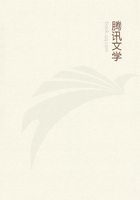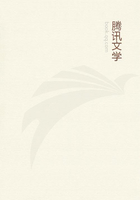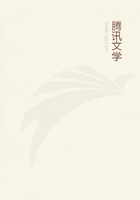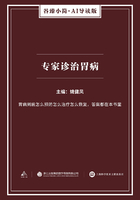Brackett says: "Lee was filled with sorrow at the condition of affairs, and, in a letter to me, deploring the war in which we were about to engage, made use of these words: 'I fear the liberties of our country will be buried in the tomb of a great nation.'" Colonel Charles Anderson, quoting Lee's final words in Texas, carries us to the point of parting: "I still think my loyalty to Virginia ought to take precedence over that which is due to the Federal Government; and I shall so report myself in Washington. If Virginia stands by the old Union, so will I. But if she secedes (though I do not believe in secession as a constitutional right, nor that there is sufficient cause for revolution) then I will still follow my native State with my sword, and, if need be, with my life. I know you think and feel very differently. But I can't help it. These are my principles;and I must follow them."
Lee reached Washington on the first of March. Lincoln, delivering his Inaugural on the fourth, brought the country one step nearer war by showing the neutrals how impossible it was to reconcile his, principles as President of the whole United States with those of Jefferson Davis as President of the seceding parts. "The power confided to me will be used to hold, occupy, and possess the property and places belonging to the government." Three days later the provisional Confederate Congress at Montgomery in Alabama passed an Army Act authorizing the enlistment of one hundred thousand men for one year's service. Nine days later again, having adopted a Constitution in the meantime, this Congress passed a Navy Act, authorizing the purchase or construction of ten little gunboats.
In April the main storm center went whirling back to Charleston, where Sherman's old friend Beauregard commanded the forces that encircled Sumter. Sumter, still unfinished, had been designed for a garrison of six hundred and fifty combatant men. It now contained exactly sixty-five. It was to have been provisioned for six months. The actual supplies could not be made to last beyond two weeks. Both sides knew that Anderson's gallant little garrison must be starved out by the fifteenth. But the excited Carolinians would not wait, because they feared that the arrival of reinforcements might balk them of their easy prey. On the eleventh Beauregard, acting under orders from the Confederate Government, sent in a summons to surrender. Anderson refused. At a quarter to one the next morning the summons was repeated, as pilots had meanwhile reported a Federal vessel approaching the harbor. Anderson again refused and again admitted that he would be starved out on the fifteenth. Thereupon Beauregard's aides declared immediate surrender the only possible alternative to a bombardment and signed a note at 3:20 A.M. giving Anderson formal warning that fire would be opened in an hour.
Fort Sumter stood about half a mile inside the harbor mouth, fully exposed to the converging fire of four relatively powerful batteries, three about a mile away, the fourth nearly twice as far. At the northern side of the harbor mouth stood Fort Moultrie; at the southern stood the batteries on Cummings Point;and almost due west of Sumter stood Fort Johnson. Near Moultrie was a four-gun floating battery with an iron shield. A mile northwest of Moultrie, farther up the harbor, stood the Mount Pleasant battery, nearly two miles off from Sumter. At half-past four, in the first faint light of a gray morning, a sudden spurt of flame shot out from Fort Johnson, the dull roar of a mortar floated through the misty air, and the big shell--the first shot of the real war--soared up at a steep angle, its course distinctly marked by its burning fuse, and then plunged down on Sumter. It was a capital shot, right on the center of the target, and was followed by an admirable burst. Then all the converging batteries opened full; while the whole population of perfervid Charleston rushed out of doors to throng their beautiful East Battery, a flagstone marine parade three miles in from Sumter, of which and of the attacking batteries it had a perfect view.
But Sumter remained as silent as the grave. Anderson decided not to return the fire till it was broad daylight. In the meantime all ranks went to breakfast, which consisted entirely of water and salt pork. Then the gun crews went to action stations and fired back steadily with solid shot. The ironclad battery was an exasperating target; for the shot bounced off it like dried peas.
Moultrie seemed more vulnerable. But appearances were deceptive;for it was thoroughly quilted with bales of cotton, which the solid shot simply rammed into an impenetrable mass. Wishing to save his men, in which he was quite successful, Anderson had forbidden the use of the shell-guns, which were mounted on the upper works and therefore more exposed. Shell fire would have burst the bales and set the cotton flaming. This was so evident that Sergeant Carmody, unable to stand such futile practice any longer, quietly stole up to the loaded guns and fired them in succession. The aim lacked final correction; and the result was small, except that Moultrie, thinking itself in danger, concentrated all its efforts on silencing these guns. The silencing seemed most effective; for Carmody could not reload alone, and so his first shots were his last.















